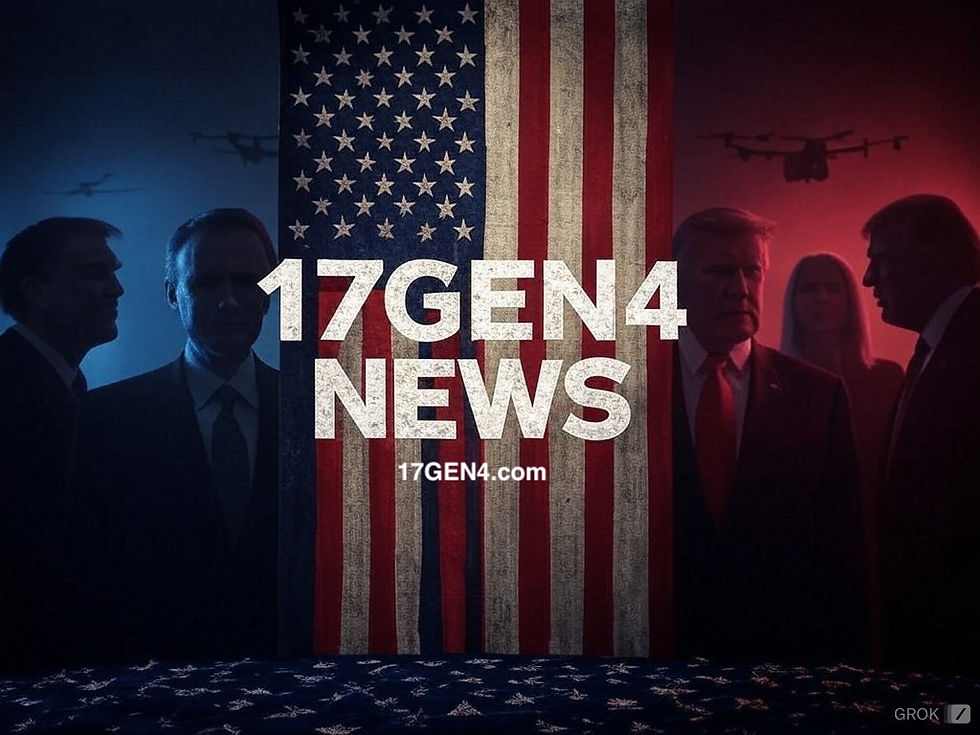Trump Delays Decision on U.S. Involvement in Israel-Iran Conflict, Cites Two-Week Window for Negotiations
- 17GEN4

- Jun 19
- 2 min read
Washington, D.C. – June 19, 2025 – President Donald Trump has postponed a final decision on whether the United States will join Israel’s ongoing military operations against Iran, emphasizing a potential two-week period to explore diplomatic negotiations. The announcement comes amid escalating tensions in the Middle East, where Israel and Iran have been exchanging airstrikes targeting nuclear facilities and military sites, raising fears of a broader regional conflict.
Speaking to reporters at the White House on Wednesday, Trump remained ambiguous about U.S. military involvement, stating, “I may do it, I may not do it. Nobody knows what I’m going to do.” He underscored the importance of preventing Iran from acquiring nuclear weapons, a long-standing U.S. policy goal, while suggesting that Iranian officials are eager to negotiate. “The next week is going to be big,” Trump said, adding that he had warned Tehran, “It’s very late to be talking.”
Karoline Leavitt said during a White House press conference Thursday that the Trump administration is considering a brief extension—up to two weeks—to allow for potential diplomatic breakthroughs. This follows reports of phone conversations between Trump’s special envoy, Steve Witkoff, and Iranian Foreign Minister Abbas Araqchi, mediated by Oman, aimed at de-escalating the conflict. However, Iran’s supreme leader, Ayatollah Ali Khamenei, has publicly rejected negotiations under military pressure, complicating prospects for a swift resolution.
The Israel-Iran conflict intensified on June 13, when Israel launched a surprise attack on Iran’s nuclear enrichment facilities, killing senior military commanders and nuclear scientists. Iran retaliated with missile and drone strikes, including an attack on a hospital in southern Israel, prompting Israel to vow further escalation. Israeli Defense Minister Katz has named eliminating Khamenei as a war goal, while Trump has explicitly rejected calls to target Iran’s supreme leader.
Trump’s hesitation reflects a balancing act between supporting Israel, a key U.S. ally, and avoiding entanglement in a prolonged Middle Eastern war, a promise central to his campaign. Domestic political pressures are also at play, with 53% of Trump’s 2024 voters opposing U.S. military involvement *, according to a recent poll. Conservative commentators, including Tucker Carlson, have urged the president to steer clear of the conflict.
International efforts to broker peace are ongoing, with Oman and Qatar leading initiatives to bring the U.S. and Iran back to the negotiating table. However, Iran’s deputy foreign minister, Majid Takht-Ravanchi, warned that U.S. military intervention would trigger retaliation against American targets, risking “an all-out war in the region.”
As the situation unfolds, Trump’s decision—expected within the next two weeks—will likely shape the trajectory of the conflict and U.S. foreign policy in the Middle East. “Things change, especially with war,” Trump noted, signaling his preference to keep all options open.
* statistic source - Grok


Comments